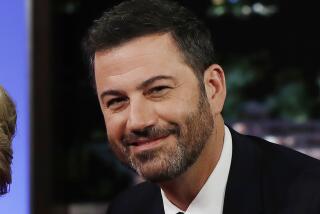Boy Who Lost His Arm Takes Home a Miracle
- Share via
Dr. John Reinisch was about to sit down to a Mother’s Day dinner with his family when he received a distressing call from Childrens Hospital, where he is chief of the plastic surgery unit. A 4-year-old boy’s arm had been severed by a washing machine and he was at the hospital awaiting surgery.
Reinisch was on call that night, so he raced to the hospital and examined the boy. He told the boy’s parents that he would do his best, but he was very doubtful that he could successfully reattach the arm.
On Wednesday, however, about five weeks after the surgery, the boy, Malik Singletary, was smiling and chatting with his parents as he was released from the hospital. He has recuperated from the surgery and the arm is slowly improving.
“This is the biggest moment of my life,” said Camille Epps, the boy’s mother. “It’s just amazing what has happened.”
Although Malik’s improvement has been dramatic, it is still too early to determine if he will regain full use of the limb. It will be at least six months to a year before the doctors can determine the extent of the recovery.
“We’ll have to see how well he moves his elbow and his wrist,” Reinisch said. “I expect he will be moving them reasonably well. But it’s such an uncommon injury, it’s hard to say for sure.”
Still, the fact that the arm has been reattached and the nerves are regenerating is remarkable, considering the extent of the injury, Reinisch said.
Malik’s arm was twisted off, just above the elbow, when he reached into a spinning washing machine at a Hollywood coin laundermat. The arm remained in the washing machine for about 10 minutes, until paramedics arrived, Reinisch said.
When Reinisch examined the boy’s arm at the hospital, he was pessimistic. The odds are much better if a limb has been cleanly severed. But because of the nature of Malik’s injury, Reinisch knew it would be extremely difficult to reattach the arteries and sustain the blood flow.
“I told the family then that I would try my best, but there was a high likelihood that I wouldn’t be successful,” Reinisch said. “I told them the chance of success was less than 30% . . . that blood would flow to the arm and it would look healthy the next morning.”
Reinisch and a team of surgeons worked through the night to restore torn muscles, nerves and skin, stretched and ruptured blood vessels, and broken bones.
Reinisch had conducted this type of surgery twice before, but never on a patient so young with such extensive injuries. Surgery began about 7 p.m. A few hours later they were able to reestablish some blood flow to the severed arm.
By midnight blood was still circulating. Reinisch was encouraged for the first time.
“The next morning the fingers were pink . . . the blood flow was good,” Reinisch said. “I was getting more optimistic. I told the family it was important that the fingers still look good 24 hours later.
“The next morning the hand was still warm. We were measuring the level of oxygen through the skin. We knew arterial blood was getting in. I told the family my assessment for recovery went from 30% to 80 or 90%.”
Malik’s mother, a secretary, and his father, Herman Singletary, a musician, said they will file a lawsuit against the laundermat and the maker of the washing machine.
Their son misses school and his friends, they said, but now that he is going home he is in good spirits. Malik, whose arm was in a sling, smiled shyly and climbed into his parents’ car that was filled with toys and balloons, sent by well-wishers.
“I’ve been amazed at how strong and how brave he’s been,” said Epps. “I always knew our prayers would be answered. I always knew that this day would come.”






